Ink is central to most services - The Noel D'Cunha Sunday Column
Siegwerk's Vinay Bhardwaj says, important changes are afoot - and we need to be alert and better prepared.
In this conversation, Bhardwaj focuses on the pandemic, packaging, and how to cope
15 Nov 2020 | By Noel D'Cunha
WhatPackaging?: Kudos on your presentation during the Virtual ProPak conference. What was your main message to the industry?
Vinay Bharadwaj:The pandemic has taught us how important our health is to us and that playing with nature always brings a catastrophe. Sustainability is the need of the hour and it is not plastic which is bad but the way we use it which is bad.
WP?: How so?
VB: It has been proven that plastic is a boon to mankind as it has helped us save tons and tons of food and feed many starving people by aiding safe transportation. Unfortunately, we always tend to be complacent once we have easy availability of things, as in this case, by not managing plastic waste. All we need to do is manage the plastic waste by - reduce, reuse and recycle and try to create a circular economy.
WP?: According to Siegwerk’s data, which types of packaging will be most in-demand over the next few months?
VB: For next few months more and more mono materials will be in demand as this helps us facilitate recycling. Also, reduction in use of plastic layers will prompt for more barrier coated packaging materials. From a product segment point of view essential commodities like oil,cereal,milk will continue to lead with more spurt in small packs. This is because people are restricted to eating at home.
WP?: We saw gravure converters achieve 90% of their capacities even during the lockdown. While offset carton converters are seeing 85% of utilisation. What is Siegwerk’s assessment?
VB: Most of the gravure converters support largely food items and a lot of them are essentials like: milk, oil, sugar, rice, flour which explains the boom during pandemic. But when we look at offset cartons there is a large part which caters to white goods as well as luxury items like perfume and skin care . One other key segment for mono cartons is liquor. All these segments were off-the-list for every consumer. This explains why the offset carton industry was a little sluggish as compared to the gravure converters.

WP?: You mentioned a change in the consumer mindset in India for oil packs and oil pouches in your presentation. Please illuminate more.
VB: Milk and oil are an integral part of every Indian household. We have many different edible oils available and bulk of this is sold in loose forms - bulk packs like 20kg, 10kg. I am sure every one of us has seen the 20-litre tin container of oil. This being an expensive item, is purchased in a non-packed form by many consumers. Basically, containers are carried to a local shop and the required quantity is purchased.
WP?: What is the reason for the shift?
VB: Well, Covid-19 has had a huge impact on this purchase and there was a paradigm shift in consumer habits. Considering the safety any item which is exposed is at high risk – and so, more and more people opted for 1 kg packs. Since the product is packed, it is considered safe for consumption which is true. We saw a huge spurt in converters buying inks for oil packaging because of the market demand. There was a six-seven times increase in demand. So, to answer your question, we see use of small packs increasing.
WP?: How has Siegwerk helped in the production of essential commodities?
VB: Siegwerk was one of the first ink companies to start operations during the pandemic. All packaging materials for essential commodities are printed to meet regulatory requirements and hence ink is equally important along with packaging material. There were many large converters like IDMC, Tetrapak, Uflex, Huhtamaki, ITC plus a few regional players who support local brands.
WP?:You mentioned Siegwerk's hand holding role with major oil and milk brands. In what way?
VB:One of the key segments in this category is milk and oil which is part of our everyday life. We took a conscious call to support the essential commodities without considering the business impact. Whatever we did during the first four-five weeks was for serving society.
WP?: What about pharma?
VB: Another key segment where Siegwerk played an important role is pharma. We have many customers like ACG, Bilcare and many regional players who have 100% dependence on us. I do not need to explain the importance of pharma during the pandemic. We did many exceptional things to serve the requirements and the team at Siegwerk is really committed to serve the society.
WP?:How have the recent weeks been at the Siegwerk factory due to the pandemic?
VB: We have a very committed team at Siegwerk and safety is always high priority. We had divided the entire operations into two shifts and everyone including the top management willingly participated and supported. For instance, I was doing a morning shift during one week and the next week, I did the second shift. We continued with our regular meetings using online tools. On the customer side, we supported all our customers with online as well as physical support wherever required. There is something special about the team as they never seem to be losing customer focus and even the pandemic never dampened our spirits.
WP?: Your company had set targets in India for 2021. Is everything under control – in spite of the disruption?
VB: As mentioned earlier, safety and sustainability are two key goals for the organisation. Now with the IS 15495 in place one of the key objectives is to ensure smooth transitions to Toluene-free inks nationwide. Many of the converters are new to these inks. Siegwerk is the only company to ban the use of Toluene proactively, in 2017. Since Siegwerk is the only company with exclusive Toluene-free facilities, most of the customers are looking at us to facilitate the transition.
WP?: What's your main goal right now?
VB:It has been a very busy time for us since the past few weeks - and we expect 2021 to be very busy for us. We feel proud that finally the change is happening and we are getting to lead the change.
WP?: You mentioned raw materials supply in your talk. Solvents, pigments, pigment intermediates, and other specialty chemicals were impacted by the pandemic. How is Siegwerk coping with this new reality?
VB: As I speak today the supply chain on raw materials is in a much better situation. It was a tough time in early April which continued almost till June-July. We are familiar that domestic manufacturing was impacted during the lockdown which had an impact on the supply chain. We helped and guided many of our business partners to restart their operation. We had gained a lot of knowledge and experience being the early starter in manufacturing. As always, we believe in sharing our knowledge with our business partners.
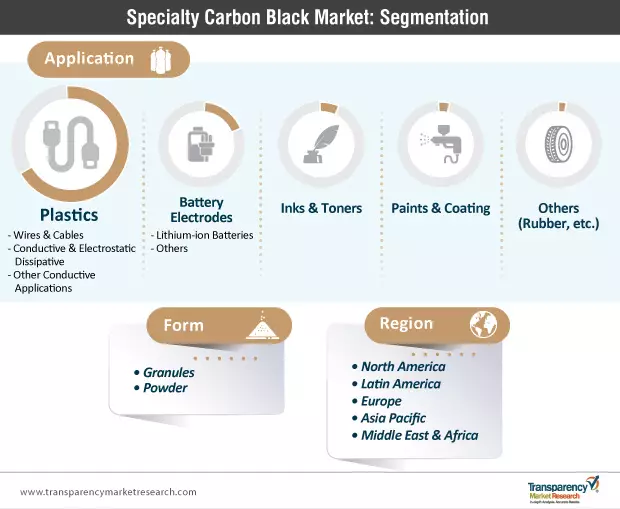
WP?: What about imports?
VB:On the import side, the port situation was bad, as even after the government of India announced opening of ports there was no one to do the clearance. Then there was no transport available from ports to our factory. The team had to think out-of-the-box to clear the materials and get it into our factory in Bhiwadi. Overall, the situation was difficult but the team worked long hours to ensure continuity of supplies to our customers.
WP?: The dreaded C word. In lieu of the Atmanirbhar campaign by the government of India, do we have to re-calibrate our response to China?
VB:It is always better to be self-dependent. I feel, in India, we do not have any dearth of resources as well as the talent to convert the resources into utility. In the ink industry we have dependence on China for raw materials – also on account of cost. Now with support from the Government we can have alternates available locally. There has been a concentrated effort about this - and the industry is surely looking at localisation. At Siegwerk, we have made continuous efforts to develop solutions, locally. There have been investments at Siegwerk India to broaden the horizon and support other regions across the globe.
WP?:In public forums everyone speaks about sustainability and safety. In this context, has sales of water-based, environmentally friendly packaging ink increased?
VB:S ustainability and safety are the most important topics and Siegwerk is always championing the same. Water-based inks are extremely important keeping in mind the advantage of water over solvents from sustainability as well safety point of view. We have already proven solutions available for flexo as well gravure technology. It is not easy to develop these inks since it needs a lot of investment in R&D. But Siegwerk is always committed to this noble cause and always leads from front. Though our solutions are well developed and many customers are deploying flexo, we see that gravure has not picked up so much as the equipment plays a very important role in running the water-based inks.
WP?: Is the usage significant or incremental?
VB:We are in close discussion with some of our esteemed customers who are willing to take this giant leap and make additional investments to take this forward. We are hopeful in the future, we will have more use of water-based inks.
WP?: During the pandemic we are seeing re-adjustment by the big brands and consumers; will this be permanent? Or it will continue to evolve ...
VB: Consumer behaviour drives the market and brand owners are quick to take cognisance of change in the market. So, some of these changes are long term and some short term. Anything to do with health is a key concern for the consumer. I do not see this changing in the near future. On the other hand, with demand and supply gap cost may not be so much of a concern but that may not last long. Other key changes will be consumer awareness especially with easy access to internet and social media it will not be easy to cover up for any brand owners and hence first time right will be very important. Basically, the bar on quality standards will be raised.
WP?: There is so much negativity during the pandemic. Any positive stories that emanated from your channel partners or packaging converters partners?
VB: We understand the impact the pandemic has had on overall society as well as the economy and definitely would not want this to happen ever again. But we always believe one has to learn to live through the uncertainties and keep looking at opportunities. World will remain volatile and one has to start acclimatising and we have seen many examples during the pandemic, and how many players have created opportunities out of the blue.
WP?: Do you think packaging will change forever following Covid-19? If yes, how so?
VB: Surely there is very high awareness among people on safety and hygiene which in turn has an impact on packaging. We will see a paradigm shift in consumer habits while selecting packs off the shelf and hence the packaging has to be designed accordingly. Functional properties of packaging material will be of immense importance and scope for any compromise will be minimal as consumers will be quick to reject anything which is unsafe.
WP?: Vinay Bharadwaj, what have you learned personally and professionally throughout these last few months of social distancing?
VB:The pandemic has been a catastrophe. All of us had our learnings, some common and few specific. Personally speaking, this has reinforced my belief in the importance of human beings and the relationships we develop. This may sound a little philosophical but at the end of the day we are left with nothing but memories of relationships. I am sure everyone would only cherish good memories. Being agile will be the mantra for the future and we should have the appetite to adapt as fast as possible to changing situations.
WP?: Final thoughts …
VB: Patience and perseverance are two important learnings. The pandemic has taught us these virtues. We cannot predict the future. As we say in cricket, we have to play ball by ball or session by session without being too eager to predict the results. People with patience and perseverance will last in this game.
Vinay Bhardwaj is the vice president (flexible packaging and tobacco) at Siegwerk, India. In the past he was the CEO of a flexible packaging firm in Muscat, Oman. He has also worked in a JV between Thomson Press and Dai Nippon Japan as well as Huhtamaki-PPL, India. He is an avid golfer and represented Oman in the Audi World Cup.


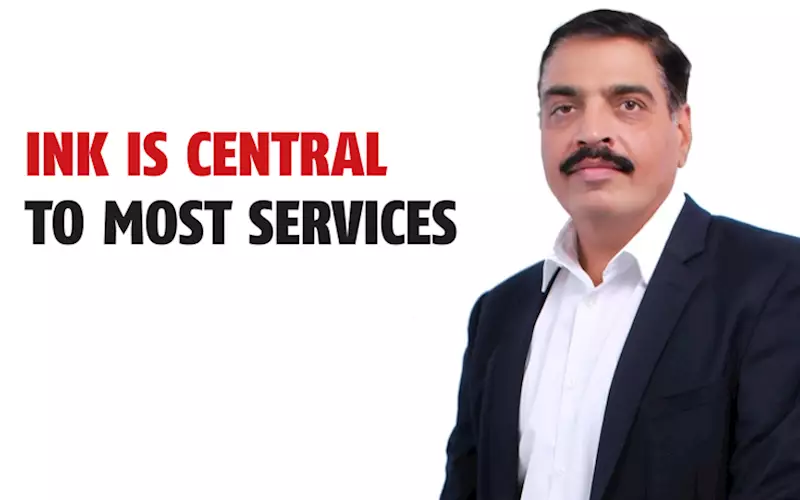
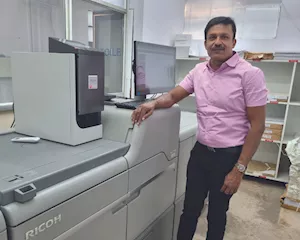
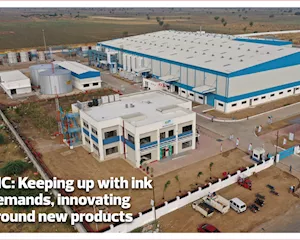
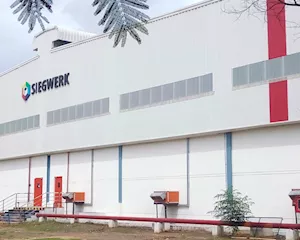
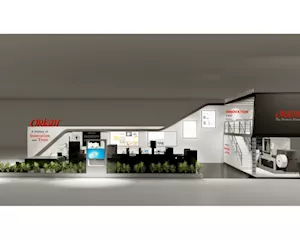
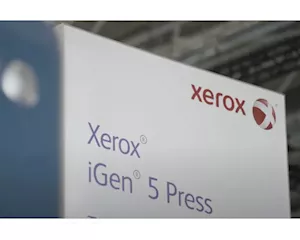






 See All
See All